Introduction
Since its release in 2013, Grand Theft Auto V (GTA V) has captured the imagination of millions. Known for its sprawling open world, engaging missions, and dark sense of humor, the game takes players through a chaotic journey in the fictional city of Los Santos. However, beneath the surface of its high-octane action, GTA V delves deeply into the complexities of morality and character development. The game presents players with a world where ethics are murky, and moral choices are rarely clear-cut. This is especially reflected in the game's three protagonists—Michael De Santa, Trevor Philips, and Franklin Clinton—whose stories and actions serve as a critique of the moral landscape of crime, loyalty, and ambition. This article will explore the intricate moral dilemmas faced by these characters, focusing on how their development mirrors the choices players make and how the game challenges traditional notions of right and wrong.
1. The Trio of Protagonists: A Moral Crossroads
One of the most revolutionary aspects of GTA V is its introduction of three playable protagonists, each with distinct personalities, backgrounds, and ethical frameworks. Michael, Trevor, and Franklin are not merely avatars for the player; they represent different aspects of morality and the struggle between personal desires and social responsibility. These three characters serve as a canvas for the game’s exploration of how individuals make moral decisions under pressure and how their choices shape their ultimate fates.
Michael De Santa: A Man on the Edge of Redemption
Michael’s story begins with a desire to escape his criminal past and lead a quiet life with his family. However, his need for excitement and wealth pulls him back into the world of crime. Michael's ethical struggles stem from his belief that he deserves a better life, despite his violent past. His moral dilemma is particularly centered around his family life—his desire for redemption and personal stability constantly conflicts with his old habits and his sense of entitlement to a luxurious lifestyle.
Michael's Struggle:
- Redemption vs. Crime: Michael wants to leave crime behind but often justifies his involvement in illegal activities due to his desire for wealth and status.
- Family and Loyalty: His relationships with his wife, Amanda, and his children, Tracey and Jimmy, are strained by his criminal activities, highlighting the cost of pursuing personal desires over familial responsibility.
2. Trevor Philips: The Epitome of Chaos and Lawlessness
Trevor represents the antithesis of Michael’s desire for redemption. His character is a chaotic force in the game world, acting without regard for moral or legal constraints. Trevor's backstory is rooted in his abandonment by society and his violent, unpredictable behavior. He revels in chaos, destruction, and anarchy. For Trevor, there are no rules—only opportunities to take whatever he wants, whenever he wants it. His character challenges the boundaries of morality, showing how absolute freedom can lead to a loss of human decency.
Trevor's Morality: No Boundaries, No Regrets
Trevor is a product of his environment and mental state, with a worldview that operates on impulse, rage, and a deep sense of betrayal. He is not bound by any ethical guidelines and views violence as a natural and necessary tool for survival. For him, the world is a game of power, where the strong prevail by dominating others. His decisions throughout the game are often morally abhorrent, but they are driven by a consistent internal logic.
Trevor’s Worldview:
- Violence as Freedom: Trevor’s lack of a moral compass leads him to view violence as not only necessary but also empowering. He doesn’t hesitate to kill, maim, or destroy in the pursuit of his goals.
- Betrayal and Loyalty: Despite his anarchic tendencies, Trevor is fiercely loyal to those few he considers close, such as Michael. His moral code centers around betrayal—whether it’s others betraying him or vice versa.
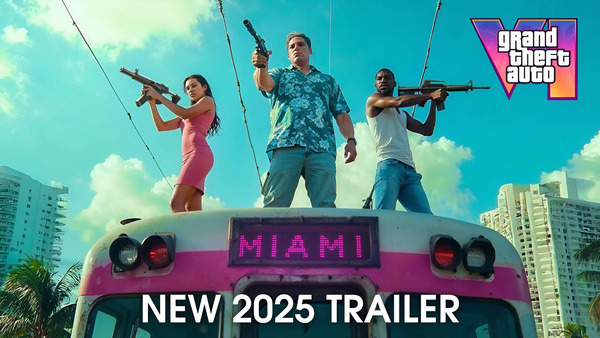
3. Franklin Clinton: The Youth Caught Between Two Worlds
Franklin, the youngest of the three protagonists, represents a bridge between the old world of crime (embodied by Michael and Trevor) and the hope of a new life. Born and raised in the tough neighborhoods of Los Santos, Franklin’s early life is marked by criminal activity, but he dreams of escaping this cycle and achieving a better life. His story is defined by the tension between loyalty to his friends and the desire for personal growth and success.
Franklin’s Ethical Dilemmas: Ambition vs. Loyalty
Franklin’s moral journey is one of self-discovery, where he must decide whether to maintain his loyalty to his friends or strike out on his own to secure his future. His struggle lies in balancing his loyalty to Michael and Trevor, both of whom become like surrogate fathers to him, and his desire to escape the dangerous lifestyle they live. Franklin’s character arc represents the difficulty of making moral choices when ambition, loyalty, and survival are constantly at odds.
Franklin’s Key Choices:
- Street Life vs. Ambition: Throughout the game, Franklin is tempted to step up in the criminal world for the sake of wealth, but his character also yearns for a life outside of crime. His internal conflict reflects the broader moral dilemma of achieving success through illicit means.
- Loyalty vs. Self-Interest: Franklin’s loyalty to Michael and Trevor is tested by his ambition. In key moments, he must decide whether to follow through with criminal actions that will benefit him or align with his friends' desires for power and wealth.
4. The Shifting Morality of the Protagonists
The development of Michael, Trevor, and Franklin reflects a dynamic, shifting relationship with morality. Over the course of the game, players can observe how each protagonist’s ethics evolve based on their experiences, choices, and the people they encounter. This evolution is a direct result of the player’s choices, making GTA V an interactive exploration of moral growth (or decay).
The Influence of Player Decisions on Character Development
The morality of each character is largely shaped by the decisions made by the player. For instance, players can push Michael toward further corruption by continuing his involvement in criminal activities, or they can try to guide him toward redemption by steering him away from the darker paths. Similarly, Trevor’s unpredictable nature can either be tempered by moments of friendship or escalated into uncontrollable violence. Franklin’s ultimate fate is also determined by whether he chooses loyalty or self-interest in the end.
Key Moments of Character Development:
- Michael’s Redemption: Players can guide Michael toward reconciling his criminal past with his desire to be a better person, or they can deepen his ties to crime.
- Trevor’s Downward Spiral: Trevor’s choices often lead him to more erratic behavior, but players can also see him struggle with the tension between his chaotic nature and the bonds he has with others.
- Franklin’s Growth: Franklin’s development is the most malleable, offering players a chance to shape his future, either by breaking free from the criminal world or embracing it fully.
5. Morality in the Context of Crime: A World Without Consequences?
At the heart of GTA V is the game’s portrayal of a world where crime is rampant, and the consequences of illegal actions are often distant or invisible. The moral fabric of Los Santos is torn, and the game’s characters operate in a system where personal gain often trumps ethical considerations. This world challenges traditional concepts of right and wrong, asking whether morality even exists in a place as chaotic as Los Santos.
The Lack of Consequences in a Lawless World
In GTA V, crime doesn’t always lead to immediate punishment, which further complicates the moral questions the game raises. Characters like Michael, Trevor, and Franklin regularly engage in acts of violence and theft, yet they rarely face long-term repercussions for their actions. This creates a paradox where players are encouraged to explore their darker impulses without feeling the weight of real-world consequences.
How Crime Shapes Morality in Los Santos:
- Lack of Law Enforcement: While there are occasional police chases and responses to crimes, Los Santos is a city where crime is rampant and largely unchecked. This allows characters to pursue their goals without fearing real punishment.
- The Consequences of Action: Despite the lack of immediate consequences, the characters often face personal and emotional fallout from their decisions, such as damaged relationships, betrayal, or loss of life.

6. The Role of Player Choice in Shaping Moral Outcomes
Unlike many narrative-driven games, GTA V allows players to make significant choices that directly affect the outcome of the story. These choices challenge the player’s sense of morality, as they must decide not just what is best for their character, but what feels “right” in the context of the story.
The Power of Player Agency in Morality
By giving players the ability to choose how the story unfolds—whether it’s deciding whether or not to kill certain characters or determining the fate of the protagonists—the game places the burden of morality squarely on the player. This is an essential aspect of GTA V’s design, as it engages the player in moral reflection, forcing them to confront the consequences of their actions.
Significant Moral Decisions:
- Ending Choices: The final mission in GTA V provides players with the opportunity to decide the fate of Michael, Trevor, and Franklin, with each choice reflecting a different moral outcome based on loyalty, revenge, or self-preservation.
- Betrayal or Redemption: Players must choose whether to betray key characters for personal gain or attempt to redeem them, further blurring the lines between good and evil.
7. The Game’s Exploration of Loyalty and Betrayal
Loyalty and betrayal are central themes in GTA V, especially when it comes to the relationships between the three protagonists. These concepts are explored in depth, with each character's commitment to one another constantly tested throughout the game. The tension between loyalty to friends, family, and personal desires adds layers of complexity to the moral choices the player faces.
Loyalty and Betrayal as Catalysts for Conflict
The relationships between Michael, Trevor, and Franklin are fraught with moments of betrayal, misunderstandings, and shifting allegiances. These dynamics serve as a key part of the game’s moral examination, as the protagonists must navigate their personal feelings of loyalty, whether it’s to their friends, their families, or their own interests.
Betrayal’s Consequences:
- Michael and Trevor: Michael’s betrayal of Trevor is a pivotal moment in the game, causing deep emotional rifts and creating lasting consequences for their friendship.
- Franklin’s Struggle: Franklin’s ultimate decision about loyalty—whether to his street roots or his ambition—forms the crux of his character arc and final fate.
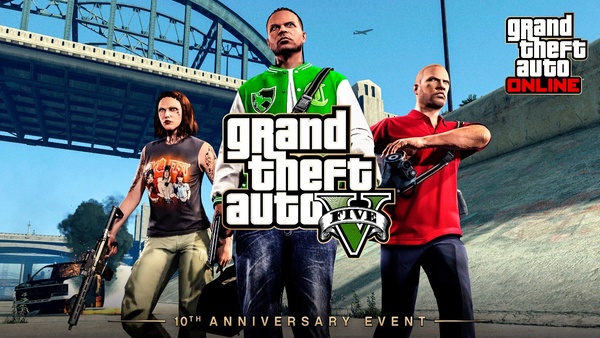
Conclusion
Grand Theft Auto V offers a deep and compelling exploration of morality through its three protagonists. The game challenges players to confront difficult ethical decisions, exploring themes of loyalty, ambition, crime, and personal growth. As players navigate the complex moral landscape of Los Santos, they are forced to grapple with questions of right and wrong, power and corruption, and the cost of success. Ultimately, the game’s open-ended narrative leaves players with the responsibility of defining their own morality, making GTA V not just a story about crime, but a profound examination of human nature and the ethical choices that shape our lives.



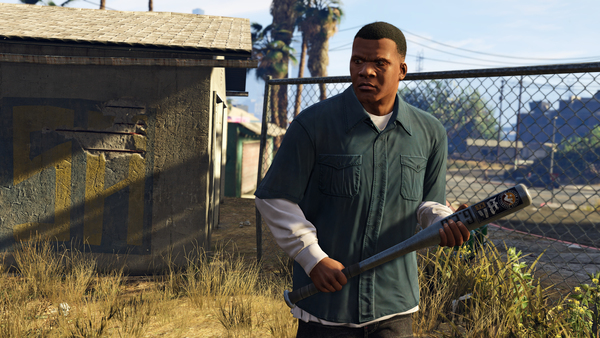

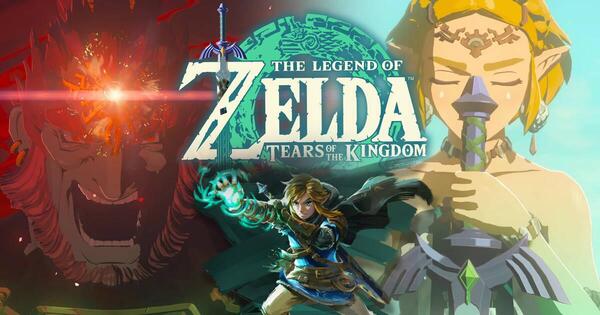
 Sea of Thieves: 2025 Edition
Sea of Thieves: 2025 Edition is a multiplayer pirate adventure game where players explore, battle, and search for treasure on the open sea. With new updates, enhanced graphics, and dynamic world events, it offers an unpredictable and immersive pirate experience.
Read full review
Sea of Thieves: 2025 Edition
Sea of Thieves: 2025 Edition is a multiplayer pirate adventure game where players explore, battle, and search for treasure on the open sea. With new updates, enhanced graphics, and dynamic world events, it offers an unpredictable and immersive pirate experience.
Read full review
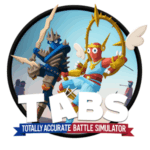 Totally Accurate Battlegrounds
Totally Accurate Battlegrounds is a physics-based battle royale game known for its wacky ragdoll mechanics, unpredictable combat, and absurd humor. Players parachute into a colorful, chaotic world where they scavenge for bizarre weapons and fight to be the last one standing. It’s a parody of traditional battle royale games, offering a fun and ridiculous twist on the genre.
Read full review
Totally Accurate Battlegrounds
Totally Accurate Battlegrounds is a physics-based battle royale game known for its wacky ragdoll mechanics, unpredictable combat, and absurd humor. Players parachute into a colorful, chaotic world where they scavenge for bizarre weapons and fight to be the last one standing. It’s a parody of traditional battle royale games, offering a fun and ridiculous twist on the genre.
Read full review
 Gorilla Tag
Gorilla Tag is a fast-paced VR multiplayer game where players move like gorillas using only their arms. With no buttons or joysticks, you run, jump, and climb in virtual environments by physically swinging your arms, making it both fun and physically engaging. The main objective is simple: tag or avoid being tagged by others.
Read full review
Gorilla Tag
Gorilla Tag is a fast-paced VR multiplayer game where players move like gorillas using only their arms. With no buttons or joysticks, you run, jump, and climb in virtual environments by physically swinging your arms, making it both fun and physically engaging. The main objective is simple: tag or avoid being tagged by others.
Read full review
 Zoonomaly
Zoonomaly is a thrilling survival strategy game where players investigate and contain mysterious animal anomalies affecting ecosystems and human populations. As a field agent, you must explore strange phenomena, collect data, make tough ethical choices, and manage limited resources to prevent global outbreaks. Each decision shapes the unfolding mystery in this science-fiction adventure.
Read full review
Zoonomaly
Zoonomaly is a thrilling survival strategy game where players investigate and contain mysterious animal anomalies affecting ecosystems and human populations. As a field agent, you must explore strange phenomena, collect data, make tough ethical choices, and manage limited resources to prevent global outbreaks. Each decision shapes the unfolding mystery in this science-fiction adventure.
Read full review
 Warframe
Warframe reveals deep links to insurance: digital assets, emotional value, support claims, and proactive risk protection.
Read full review
Warframe
Warframe reveals deep links to insurance: digital assets, emotional value, support claims, and proactive risk protection.
Read full review
 Schedule I
Schedule I defines insurance coverage details and directly impacts the success of claim approvals and policy interpretation.
Read full review
Schedule I
Schedule I defines insurance coverage details and directly impacts the success of claim approvals and policy interpretation.
Read full review